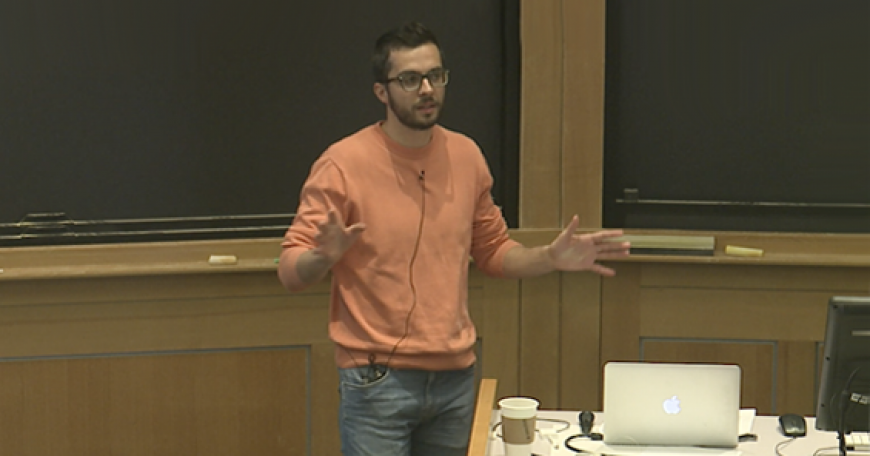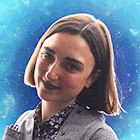
Vasilis Kostakis on a New Paradigm of Global Economy
Global economic production is growing at a rate our planet’s resources can’t sustain. We know we are using fuel faster than we can replace it, and that inventing ways to use energy more efficiently can often just provoke us to expand our use of it, ultimately leading to wider consumption. In his recent xTalk, Vasilis Kostakis posed a different approach to this model of technological development, that focuses less on industry competition and more on community self-sufficiency.
Kostakis, professor of P2P Governance at Tallinn University of Technology and Faculty Associate at Harvard University's Berkman Klein Center, presented an ongoing four year research project that considers how communities from around the world are collaboratively designing and locally manufacturing products that are integral to their survival. Using open-source guides and information, communities can create a wide manner of products, such as wind turbines, prosthetic limbs and even satellites. And through the increasing accessibility to makerspaces and “fab labs” around the world, communities can manufacture these products locally.
The concept of designing globally and manufacturing locally, coined as “cosmolocalism” in Kostakis’ talk, allegedly allows for a more sustainable approach because it keeps the “heavy” processes local (minimizing transportation costs for manufacturing) and maximizes the benefits of “light” processes (as in design and innovation) being flexible and unrestricted physically. Kostakis argued that this approach to production is more sustainable because it isn’t motivated by capitalist principles of competition, profit-maximization, or planned obsolescence.
While still very much in the beginning phases, Kostakis plans to develop his research by identifying the business models behind a few case studies of successful “cosmolocal” endeavors, and then sharing those success stories with other communities interested in open-source production. On the larger scale, he hopes to not only better understand these non-entrepreneurial modes of production and innovation, but also show how the internet and open-sourced networks can help create a more sustainable future. Imagining what that will look like in developed and developing countries will certainly differ, but the digital commons may be able to offer unique opportunities at the local scale.

Amelia Taylor-Hochberg, MCP '19

